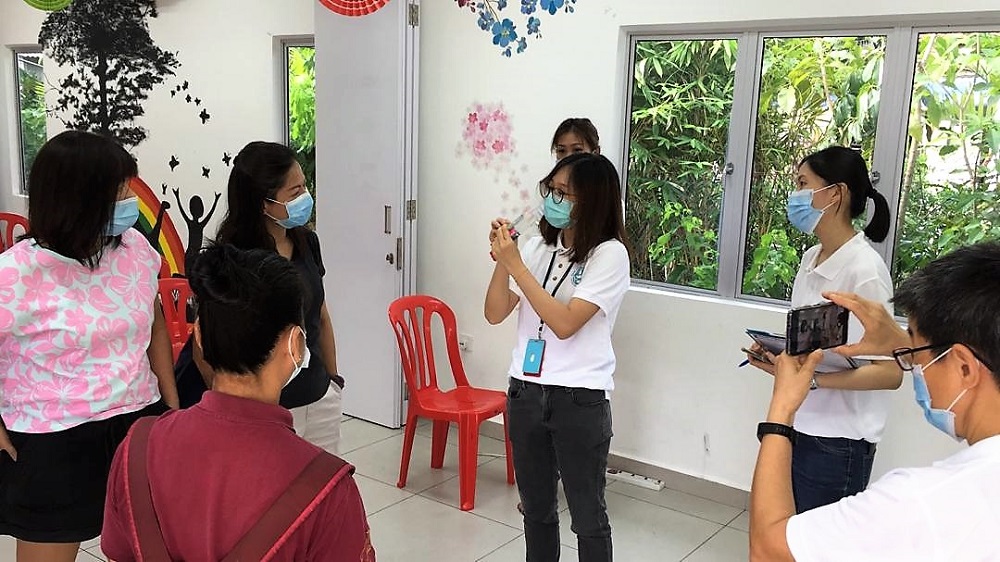PETALING JAYA, April 30 ― A Universiti Malaya (UM) student from the medicine faculty has been named global ambassador by the Global Network for Academy of Public Health to promote cervical cancer awareness among frontliners during the Covid-19 health crisis.
Doctor of philosophy (PhD) candidate Khoo Su Pei was awarded the This Is Public Health (TIPH) Global Grant Programme for the project titled “Frontliners against cervical cancer ― promoting self-care interventions for sexual and reproductive health and rights (SRHR) among frontliners”.
The project is under UM’s Program Rose, which stands for Removing Obstacles to Cervical Screening, where Khoo’s supervisor Prof Dr Woo Yin Ling is medical technical advisor and lead researcher.
Launched in 2020 by six regional associations that represent schools and programs of public health around the world, the TIPH Global campaign seeks to enhance academic public health worldwide through mutual learning and collaborations, especially during the Covid-19 pandemic.
Khoo and UM are part of 20 awardees that made it to the first TIPH Global Grant Program cohort following a competitive review process.
The 20 awardee institutions represent 18 countries with projects ranging from antibiotic resistance to mental health to water and sanitation hygiene.
Khoo was nominated by UM to participate in the global ambassador programme and is tasked to promote public health in the region and globally in her new role.
She hopes the platform will give public health a louder voice.

“As an ambassador working on projects for cervical cancer elimination, my role will be to raise awareness and educate our people on cervical cancer prevention strategies such as vaccination and cervical screening,” she told Malay Mail.
“I also want to spread the word that we now have a cancer we can actually eliminate in my lifetime – that’s a big wow!”
The former Health Ministry pharmacist said economic disruption, increased domestic violence, the exacerbation of mental health issues are some of the challenges brought on by the pandemic.
Patients also rather skip medical appointments out of fear of contracting Covid-19.
Khoo added that resources were reprioritised to fight the pandemic but health problems including cancer continue to persist in the community.
Cancer screening and prevention, she said, need to continue despite the pandemic, using innovative ways.
As global ambassador, the Johor native wants to reach out to as many women as possible to empower them to take care of themselves.
“The pandemic has also taught us how valuable our frontliners are and how they often sacrifice their needs over that of their family, community and nation.

“We wish to honour and highlight their selfless acts by incorporating the concept of self-care among the frontliners,” she added.
Thanks to generous funding by Etiqa, Rose Foundation is able to provide free cervical cancer screening to frontliners and underprivileged women using self-sampling tests and digital technology to deliver results.
“This is a good example of a public health effort – people and institutions coming together for the betterment of community health.
“Through this targeted effort, I hope our frontliners are well taken care of so we all can play our part in keeping our country safe and well,” said Khoo, who is studying the impact of HPV vaccination programmes in Malaysian schools.
The grant programme is a unique platform that allows healthcare researchers to disseminate lessons learnt using social media instead of formal academic publications to widen the reach of crucial health messages.
“For example, low cervical screening uptake among Malaysian women has been a long-time issue causing a huge number of late presenting cervical cancer cases.
“Experience in scaling up cervical screening programs in other middle-income countries provides important information for our policy-making decision,” Khoo said.
Asked about the challenges of promoting public health in Malaysia, she named health literacy and getting effective health measures across to the public as top concerns.
Covid-19 is a prime example of this hurdle, given the mixed messages Malaysians receive on social media.
“There’s lots of noise and fake news or perhaps alternative therapies that are louder than scientifically sound and evidence-based interventions.

“Maybe we as healthcare professionals do not convey strong and united messages on health – we need to do that better,” said Khoo.
Cervical cancer, for instance, is highly preventable but is the second most common cancer among women in Malaysia.
“This is due to the disparities in terms of knowledge towards cervical screening and awareness particularly among the underprivileged population.
“These are the main obstacles to eliminating cervical cancer in our country,” Khoo said.
The full list of the TIPH Global Grant Programme awardees is available here.






















